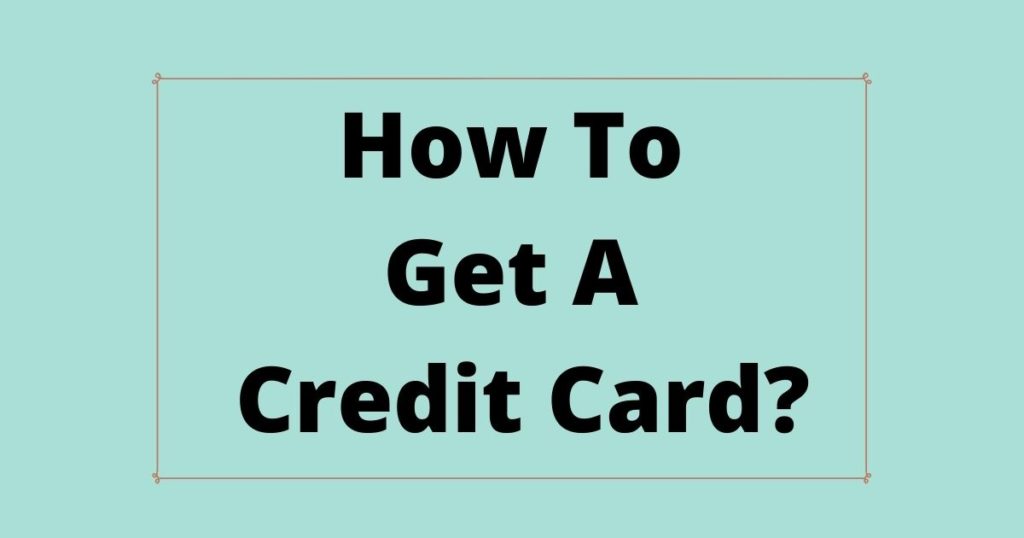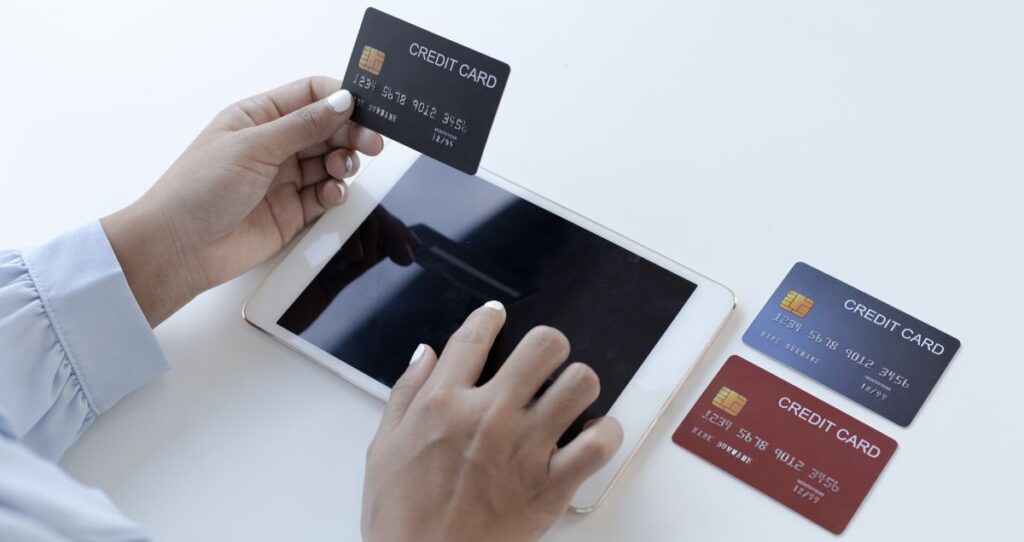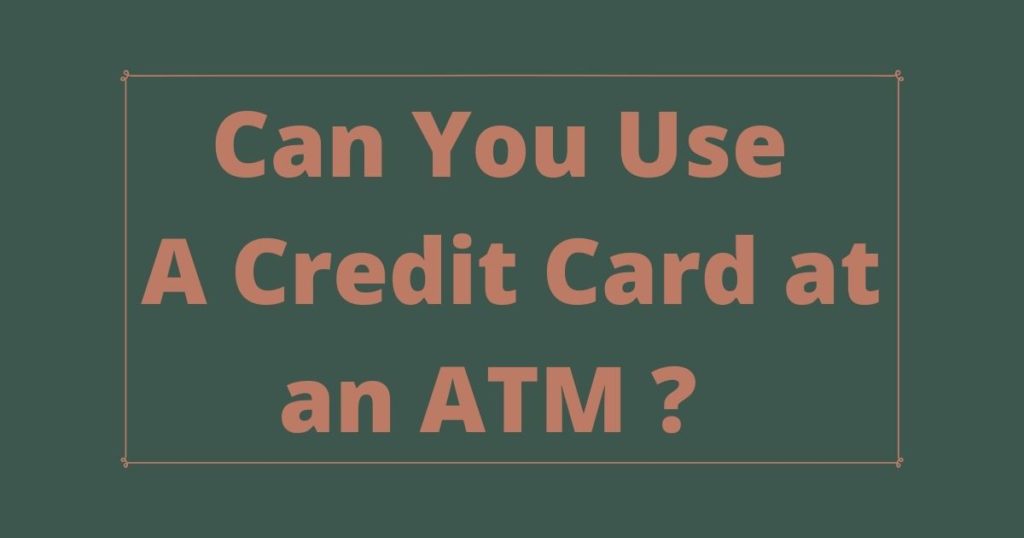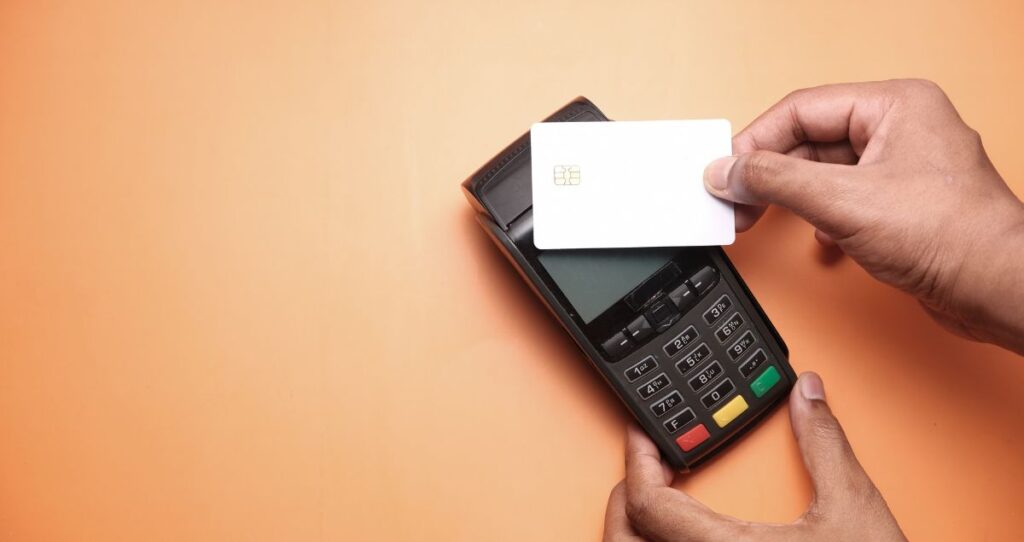Are you unemployed and need to get a credit card? Here’s how you can get a credit card without a job.
Having a steady job is essential when you are applying for a credit card as it shows that you are financially stable and are capable of paying your bills on time. What if you are unemployed? Can you still get approved for a credit card without a job? If you don’t have a job, don’t panic yet. You can still get a credit card with no job by using alternative sources of income. The Accountability Responsibility and Disclosure Act of 2009 or Credit CARD Act of 2009 requires credit card issuers to assess your credit card application based on your ability to repay.
In order words, you don’t need a job to get a credit card. But, you need alternative sources of income to help you pay off your balances. Other incomes you can put on your credit card application include dividends, loyalty, interest, rental income, disability benefits, retirement distributions, incomes from your own business, etc.
While income is important on your credit card application, it is not the only factor lenders evaluate when assessing your creditworthiness. Credit card issuers also check other factors such as credit history, credit score, debt-to-income ratio, credit utilization ratio, etc.
If you have a thin credit file or have bad credit, try secured credit cards. These cards require a down payment which acts as collateral in case you cannot pay off your credit card balances.
Key factors considered by credit card issuers when you want to get a credit card without a job
When evaluating your credit card application, there are several elements lenders typically take into account. Here are key factors lenders evaluate when assessing your creditworthiness.
- Credit history. Your credit history shows your historical performance with credit accounts and how long you have been using credit. The more established your credit history, the higher the chances you will qualify for a credit card without a job. Your credit history helps lenders to evaluate your payment history, credit utilization, the types of credit accounts you had, and how long you have been a credit user.
- Credit score. Your credit score is a three-digit number that reflects your creditworthiness. Credit scoring companies use information from your credit reports to calculate your credit score. The higher the score, the better.
- Your income. While having a steady job can provide a sense of stability to lenders, being unemployed doesn’t necessarily mean you won’t be approved. Lenders will assess your income from various sources, including any unemployment benefits, interest, dividends, assets, or freelance work you may have.
- Debt-to-income ratio. The debt-to-income ratio helps lenders evaluate how much debt you have considered to your income and your ability to pay off your credit card bills.
- Credit card utilization rate. Your credit utilization is the ratio of how much you have spent on your revolving credit account such as credit cards compared to the available credit limit. A higher ratio shows that you are relying too much on credit to cover your expenses which is a red flag for many lenders.
- Hard inquiries. Hard inquiries appear on your credit reports when you apply for credit. Recent hard inquiries do not look good on your credit reports especially when you are applying for a credit card without a job. Read more about how long hard inquiries stay on a credit report.
- Negative items on your credit reports. Negative items on your credit reports are some of the biggest key factors lenders look for when you are applying for a credit card.
- Your overall financial situation. In addition to credit history and income, lenders will also take into account your existing debts, such as loans or mortgages, as well as your savings and assets.
- The number of credit cards you have. Lenders pay attention to the number of credit cards you currently have. While it’s not a hard-and-fast rule, having too many credit cards can raise concerns about your ability to handle additional credit. Keeping this ratio low, ideally below 30%, shows that you’re not overly reliant on credit and can manage it responsibly.
Related post: What factors do credit card issuers consider for your application?
Can I get a credit card without a job?
When you don’t have a job, it’s natural to wonder if you can still get approved for a credit card. After all, being unemployed typically means you have limited income and unstable financial circumstances. However, you don’t need to have a job to get a credit card. Additionally, having a job isn’t the only criteria lenders use to evaluate credit card applications.
Lenders primarily want to ensure that you can repay any debt you incur. While a steady income is one way to demonstrate this ability, it’s not the only factor at play. Besides a traditional job, lenders will evaluate other sources of income you might have. For example, income from interest payments, loyalty, dividends, rental properties, and other forms of passive income you get can be used as qualifying income when want to get a credit card without a job.
The point here is that yes you can get a credit card without a job. However, you need to have other forms of income from investments and assets that can be utilized to pay off the line of credit being extended to you.
What documents do I need when applying for a credit card?
While you can get a credit card without a job, you still need to put together a list of required documents to support your application. If you don’t have a job, you need to work even harder to convince the credit card issuer that you are the right candidate.
When applying for a credit card, regardless of your employment status, there are certain documents you’ll need to submit along with your application. These documents help lenders assess your creditworthiness and make an informed decision.
Here are the documents you need when applying for a credit card without a job.
- Identification. You’ll typically need to provide a valid government-issued ID, such as a driver’s license or passport. This helps verify your identity and ensures that you’re legally eligible to apply for credit.
- Social Security Number. Your Social Security Number (SSN) is a crucial piece of information for credit card applications. It helps lenders verify your personal information and conduct a credit check.
- Proof of address. Lenders may ask for documents that confirm your current residential address, such as utility bills, bank statements, or a lease agreement. This helps establish your stability and provides a valid contact point for them.
- Phone number. The card issuer might reach out to you in case of fraudulent activities or clarification. Your phone can also be used to verify your account later on.
- Email address. Your email is used to verify your identity and for the e-delivery of monthly statements and related communications.
- Income verification. To get a credit card without a job, you need to demonstrate your ability to repay by providing alternative sources of income. These could include documentation of government assistance, investments, retirement benefits, or rental income. Be prepared to provide supporting documents that prove the legitimacy and consistency of these income sources.
- Bank statements. Lenders may request recent bank statements to evaluate your financial habits and determine your ability to manage credit responsibly. Providing several months’ worth of statements can give them a clearer picture of your income, expenses, and overall financial situation.
Alternative income to include on a credit card application without a job
Even if having a traditional job may be the most common source of income, it’s not the only way to demonstrate your ability to repay. Lenders understand that not everyone fits into the standard employment model. So, they are open to considering other income sources that showcase your financial stability.
Here are other sources of income you can use to get a credit card without a job.
- Rental income. If you own rental property and receive a regular income, this can serve as a steady stream of income that proves you have the means to make credit card payments. Make sure to provide copies of your rental agreements and bank statements showing consistent rental income deposits.
- Freelance work or self-employment. If you have clients or run your own business, you can use your income by providing copies of contracts, invoices, and bank statements that demonstrate a consistent cash flow. Emphasize any long-standing client relationships or ongoing projects as proof of the stability of your income.
- Investment income. If you have investments that generate regular dividends, loyalty, or interest, provide documentation such as investment statements and tax forms.
- Government assistance. According to the Consumer Financial Protection Bureau(CFPB), a credit card issuer cannot discriminate against you due to receiving a government income. When assessing your creditworthiness, the only thing the card issuer will consider is the likelihood of that income to continue. So, if you receive government assistance or benefits, such as disability payments, make sure to include this information. These payments can strengthen your case by illustrating that you have a reliable source of income to make timely credit card payments.
Tips to improve your credit score
Besides having alternative sources of income, you will need to have a good credit score when you want to get credit without a job. A higher credit score not only increases your chances of being approved for a credit card but also opens up access to better terms and interest rates. If you have a bad credit score, try to build it first before applying for a credit card.
Related article: Get a 700 credit score in 7 simple steps
Here are strategies to boost your credit score and get approved for your next credit card.
Make all your payments on time
Payment history is a significant factor in calculating your credit score. Consistently paying your bills by the due date demonstrates your reliability as a borrower. Set up reminders or automatic payments to ensure you never miss a payment and consider organizing your finances to allocate funds specifically for bill payments.
Reduce your credit utilization ratio
This ratio compares the amount of credit you’ve used to the total amount of credit available to you. Aim to keep your credit utilization below 30% to show that you are utilizing credit responsibly. For maximum benefits, keep your credit utilization under 10% or carry no balance at all.
One approach to lowering your credit utilization is by paying down existing debts or balances on your current credit cards. If you are already suffering from high credit card debts, here is a step-by-step strategy to pay off your credit card debts.
Read more: What is a credit utilization rate and how does it work?
Avoid opening multiple new credit accounts at once
Each time you apply for credit, it results in a hard inquiry on your credit report, which can temporarily lower your credit score. Instead, focus on establishing a positive credit history with your existing accounts. Regularly using your credit card and paying off the balance in full each month can demonstrate responsible credit management and contribute to an improved credit score over time.
Check your credit reports
Regularly check your credit report for any errors or inaccuracies that could be negatively impacting your credit score. If you find any discrepancies, dispute them with the credit bureaus to ensure your credit history is accurately reflected.
Related: How to get a free annual credit report?
One of the fastest ways to improve your credit score fast is to become an authorized user of a credit card. This allows you to benefit from activities on that account. Hence, boosting your credit score. Before you get added to an account as an authorized user, make sure that the card issuer reports authorized user activities to credit bureaus(Experian, TransUnion, and Equifax).
Explore secured credit card options
If you get denied a credit card due to the lack of a job, there are still a few options to consider. Start by applying for a secured credit card. Secured credit cards can be a great tool for you when you are unemployed but still need access to credit.
Secured credit cards work by requiring a cash deposit, which then serves as collateral for your credit limit. The amount of your deposit typically determines your credit limit, but it can also depend on other factors such as your income, expenses, and overall creditworthiness. These cards are often offered by banks, credit unions, and other financial institutions and can be a stepping stone toward rebuilding your credit.
Learn more: What is a secured credit card?
Do credit card companies check if you have a job?
While credit card companies prefer applicants who have jobs, most card issuers will not call your company to verify if you actually work there.
However, your lender has the right to call and verify your employment status. This happens especially when your application is not strong enough, you have lied on the application, or have started falling behind on your payments.
If you are a student, you can report the income you make during your school year. After graduation, you will have the option to update your profile and employment status. This is important because the card issuer wants to know if your income went higher so that you can qualify for a higher credit limit.
What income is too low for a credit card?
When it comes to credit cards, income is a key factor that lenders consider when assessing the creditworthiness of applicants. But what exactly qualifies as too low of an income for a credit card?
Major credit card companies typically have minimum income requirements for unsecured credit cards to ensure that you have the means to make timely payments. However, these requirements can vary widely depending on the card issuer and the specific type of card you are applying for. Some credit cards may have higher income requirements, while others may be more flexible.
According to NerdWallet, most credit card issuers have $10,000 to $12,000 as their minimum income limit for their unsecured credit cards. But, these limits can increase especially if are carrying a lot of debt or higher credit card balances. To know exactly the minimum income requirements for your credit card, check with your card issuer.
Can I get a credit card if I’m unemployed?
Yes, you can get a credit card if you are unemployed. Being unemployed doesn’t automatically disqualify you from getting a credit card. To qualify for a credit card, however, you must provide alternative sources of income or apply for secured credit cards and provide additional information to demonstrate your ability to responsibly manage credit.
Credit card companies evaluate a range of factors when considering an application, and employment status is just one piece of the puzzle. Your credit history, credit history, payment history, derogatory marks, and debt-to-income ratio are some of the many factors lenders evaluate when assessing your credit application.
If you want a credit card without a job, use alternative sources of income.
One option is to provide proof of income from sources other than employment. This could include income from investments, rental properties, retirement funds/distributions, or government benefits. Make sure to gather any necessary documentation to support these alternate sources of income when applying for a credit card.
Additionally, consider getting a secured credit card. These cards require a cash deposit as collateral, making them less risky for the card issuer. With a secured credit card, your credit limit will more likely be equal to your security deposit.
Does not having a job lower your credit score?
Not having a job does not lower your credit score. This is because your score is based on your credit accounts’ activities. In other words, your income has nothing to do with your credit score. As long as the lack of a job does not affect your ability to pay off your bills on time, your credit score will not be affected by the loss of a job.
If your credit card application got denied due to the lack of a job or other sources of income, your credit score might go down by a few points from a hard inquiry. In other words, your score will go down not because of the lack of a job. But, because of a hard inquiry that will appear on your credit report after the lender has run a credit check.
It is also important to acknowledge that unemployment can indirectly affect your credit score. Without a regular income, you may find it challenging to meet your financial obligations, potentially leading to late or missed payments or loan default. These instances of delinquency can negatively impact your credit score over time.
You might also like: How long does information stay on your credit report?
How many credit cards should you have?
When it comes to the number of credit cards you should have, there is no one-size-fits-all answer. The ideal number of credit cards varies depending on your unique financial circumstances, goals, and spending habits. It’s essential to find the right balance that allows you to manage your finances effectively without overburdening yourself with unnecessary debt.
Typically, you should aim for 2 to 3 credit cards at any point in time. This is because having a lower number of credit cards might not give you the credit limit or credit mix you need. On the other hand, having too many credit cards can lead to spending temptation and the accumulation of credit card debts.
When you want to build cred
If you are looking for ways to build credit and improve your credit score, try to have a good mixture of credit accounts. Instead of having 20 credit cards, you can have 2 to 3 credit cards and apply for an installment loan such as a car loan. This is because your credit mix is a factor in your credit score and to have a good mix, you need a combination of revolving credit such as credit cards, and installment loans such as car loans and mortgages.
Additionally, you should apply for credit cards based on your ability to handle multiple credit cards responsibly. If you are new to credit or have had a history of struggling with debt, it may be wise to start with just one or two credit cards. This will help you build a solid credit foundation and establish good spending and repayment habits.
Apply for credit cards based on your needs and their benefits
When applying for a credit card, examine the type of credit cards you need and their benefits. Different credit cards offer various benefits and rewards programs. If you find that certain cards align with your spending habits and provide significant rewards for your everyday purchases, it may make sense to have multiple cards in your wallet. However, be mindful of the annual fees and interest rates associated with each card, as these can quickly add up and impact your overall financial health.
Finally, having too many credit cards can also make it difficult to keep track of your spending and payments. It’s important to stay organized and responsible when managing multiple cards to avoid missed payments, late fees, and potential damage to your credit score.
More credit card tips
What Credit cards does Costco Accept?
Can you use two credit cards online on one purchase?
What factors do credit card issuers consider for your application?







